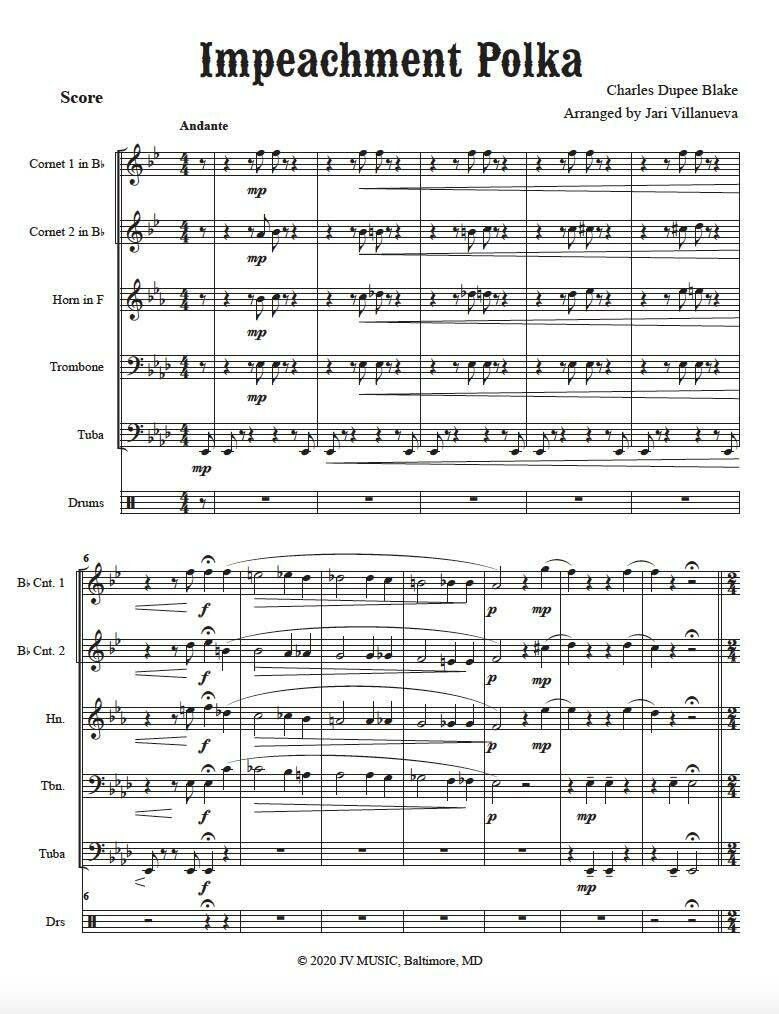FOR A LIST OF ARRANGEMENTS ONLY AVAILABLE ON SHEET MUSIC PLUS CLICK HERE:
Impeachment Polka for Brass Quintet
Charles Dupee Blake September 13, 1847 to November 23, 1903 was an extremely prolific composer of 19th century salon trifles, amassing several hundred opus numbers. He studied piano and composition from an early age with john Knowles Paine and James Cutler Dunn Parker, among others. He entered into an exclusive contract with White-Smith in Boston to publish his compositions; this arrangement lasted until 1888 when Blake began to publish his work himself. He may have written as many as 5000 works, many of which are for the piano but which also include songs and a light opera, The Light-Keeper’s Daughter (1882). He published under ten or more different pseudonyms. “Rock-a-bye Baby” (in dispute) and “Waves of the Ocean” are probably his best-known songs today, although “Clayton’s March” might have claimed that distinction in the 19th century. The style throughout is a simple one, fitted to the skills of most amateur pianists and vocalists; as his contemporaries realized, Blake aimed “at producing music for the masses, in which he was successful to an unusual degree.
This work was written at the time of the impeachment of President Andrew Johnson in 1868. https://en.wikipedia.org/wiki/Impeach...
What should be pointed out is that thousands of piano sheet music was published in the United States during the mid-19th century. Many compositions were written to commemorate an event (there were hundreds of pieces written at the death of Abraham Lincoln) religious or patriotic occasions or public sentiment on a subject.
The brass quintet arrangement is what a publisher of brass music at the time (19th century) would have done in transcribing the work from piano to instruments. A lot of peeling away of pianistic attributes and characteristics would have been removed and some harmonies and voice leadings tighten up to create a work to be performed by instrumentalists. Unfortunately I see too often some arrangers today would try and cram in every note and musical line into a transcription from a piano work. This makes works unplayable. The thought here is to do an arrangement in the same manner as in the 19th century.
Also a polka of the 19th century is much different that what most think of today. You can’t think of “Beer Barrel Polka” when approaching a polka on the 19th century. Yes, these were dance pieces but a far cry from the accordion and saxophone type music we associate with today. Enjoy a trip back to 1868. The arrangement is score for modern brass quintet but can be played with a Civil War type band (Eb parts are provided)

